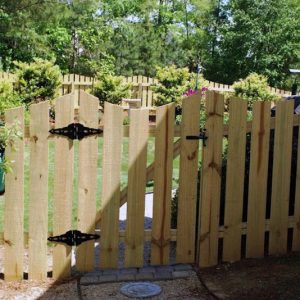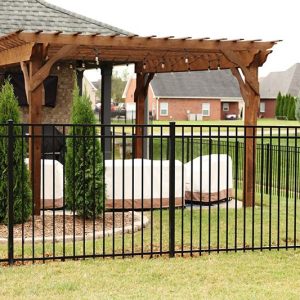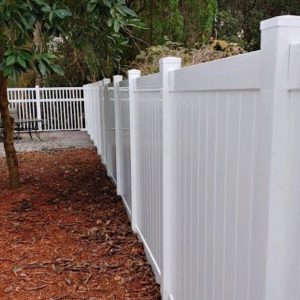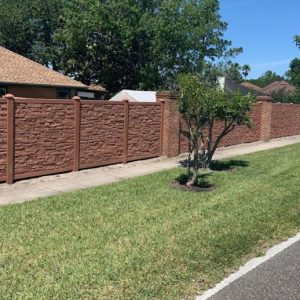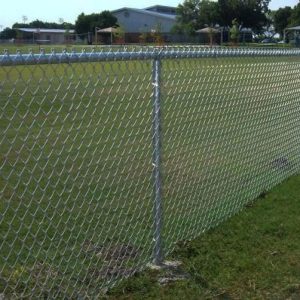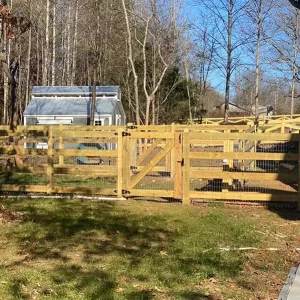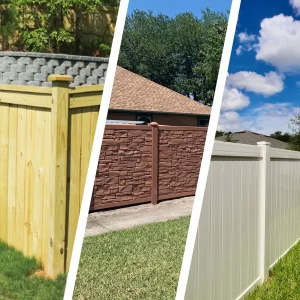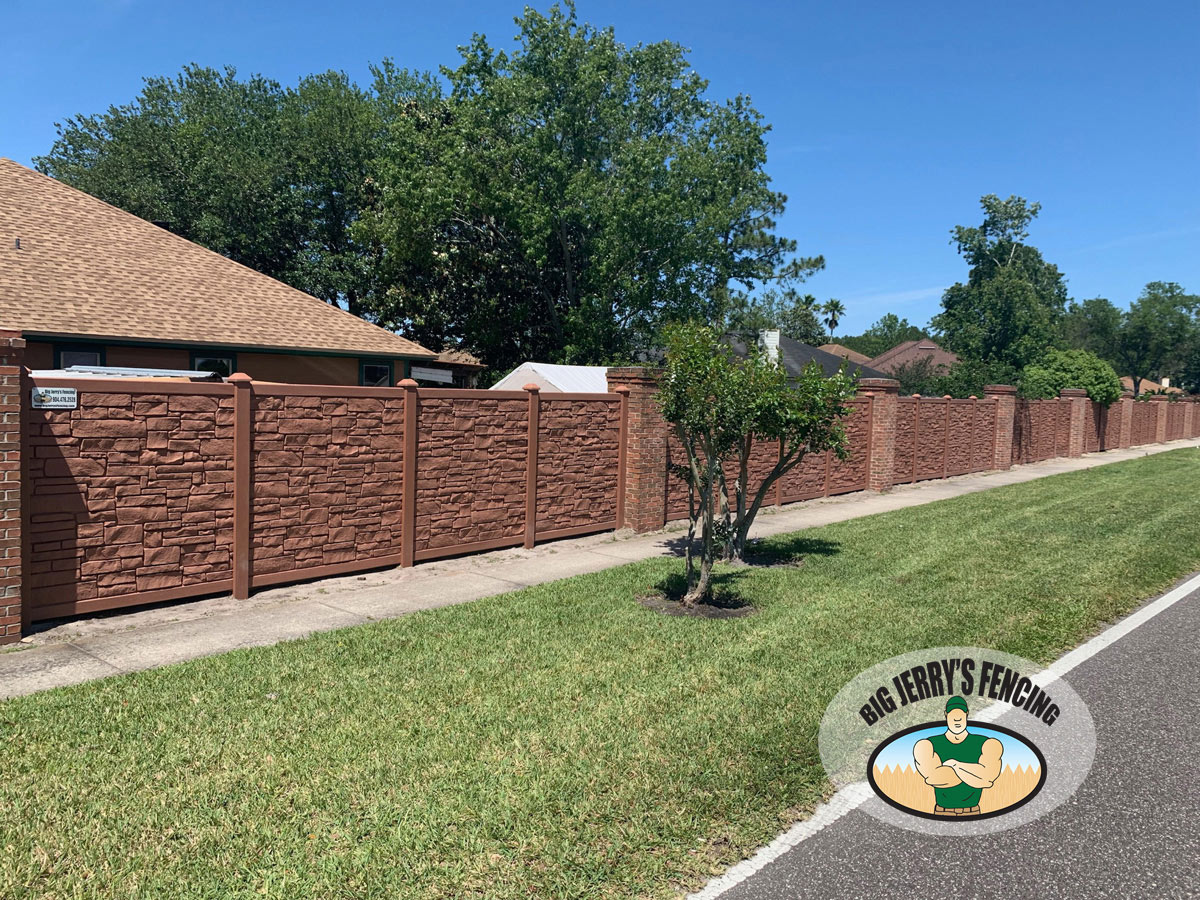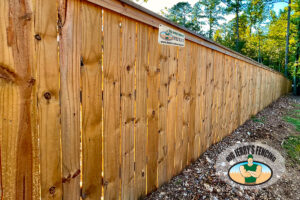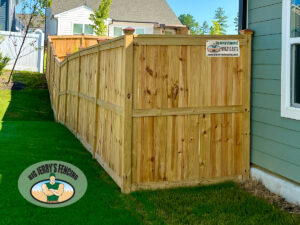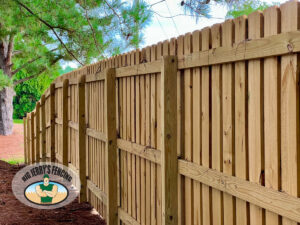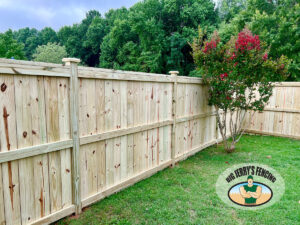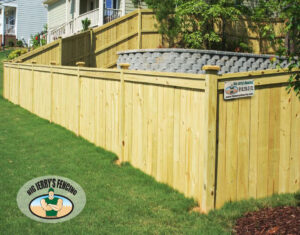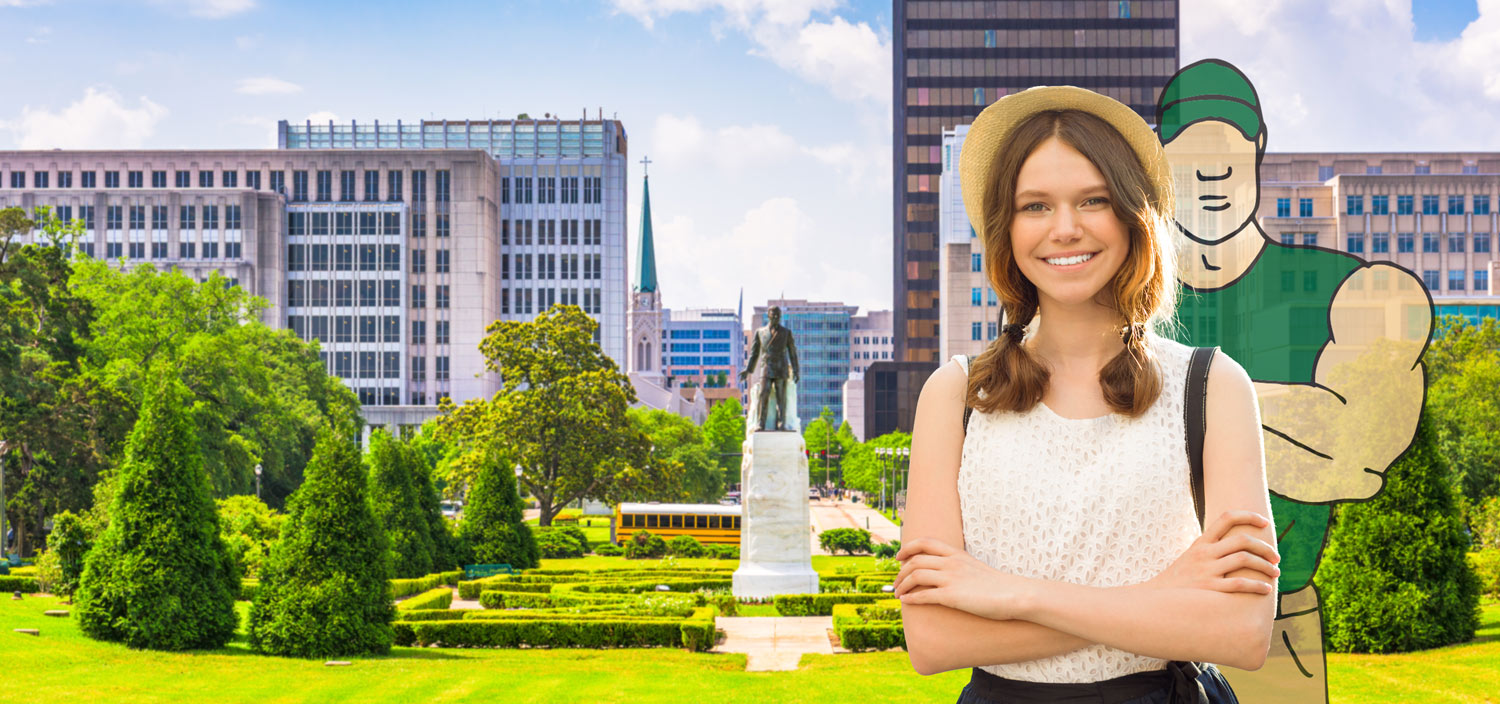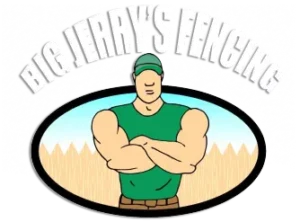The world is now shifting towards being more environmentally conscious. Whether it’s cleaner ingredients in food, electric cars, or less hazardous chemicals in cleaning supplies, more and more Americans are living non-toxic lifestyles. We have compiled a list of some fence options we recommend considering if you are looking for greener alternatives for fencing.
Metal Fences
Depending on the kind of metal, this fence type can be very eco-friendly. Metal fencing is often comprised of materials that are recyclable, and can continue to be used for many years after that.
Aluminum Fencing
If you are looking for fencing materials that have less impact on the environment, aluminum fencing may be the best fit for you. While aluminum itself is not friendlier to the environment than wood, vinyl, or wrought iron, the fact that it requires little in the way of paints, stains, or other materials that have toxic properties makes it an excellent choice for those who are looking to be environmentally friendly. For example, a stained or painted wood fence requires a new coat of stain or paint every few years. The stain that drips from the wood can harm the grass, soil, and earth below. Aluminum does not require any protective resurfacing.

Aluminum fencing is extremely sustainable. Once you feel it is time to get rid of it, you can take it apart and donate the scraps to a metal recycling center, where its lifespan will continue through repurposing.
Chain Link Fences
Regarding building materials, steel is one of the most sustainable as it is the most recycled material in the world. Once the steel has been produced, it can be recycled and reused infinitely. Chain link fences are extremely durable and long-lasting, and many chain link fences installed 50 years ago still stand in good condition today.

Western Red Cedar Wood Fences
While most wooden fences are not environmentally sustainable, Western Red Cedar is an exception. Unlike most wood fencing options, it requires no chemical treatment, which can be extremely harmful when it bleeds into the soil. It also does not easily rot, reducing the frequency with which the fence would need to be replaced.
What makes this fence different from other wooden fencing options?
Cedarwood has the lowest impact of all building materials’ on air and water quality. For starters, manufacturing wood products produces far fewer toxins and greenhouse gases than the leading man-made materials. Furthermore, the regeneration of forests after harvest creates new trees, which take in carbon dioxide and release oxygen as they grow.

Western Red Cedar is recyclable and biodegradable and comes from the most sustainably managed forests in the world. Man-made materials don’t break down like wood once discarded.
Western Red Cedar is naturally green, but certification is a bonus for consumers looking for validation. More than 85 percent of timberland in British Columbia, Canada—where most western red cedar comes from—is certified by internationally recognized, independent forest certification agencies.
Simtek Composite Fence
SimTek’s composite fencing offers superior durability and performance for creating a quiet, private outdoor living space. Enhance your yard with this innovative alternative to traditional masonry or wood! SimTek sustainable fencing has truly revolutionized fence manufacturing. The patented design of rotationally molded fencing creates a realistic stone or wood look appearance without sacrificing superior performance.
Built to withstand hurricane-force winds over 100mph and extreme temperatures between -40° and 140°F. Simtek Ecostone and Ashland fence style boast an incredible sound rating, blocking 98% of direct sound. As is usually the case for recycled-content fences, Simtek composite fences require no maintenance whatsoever. None. That means no painting, staining, or dealing with warps or cracks.
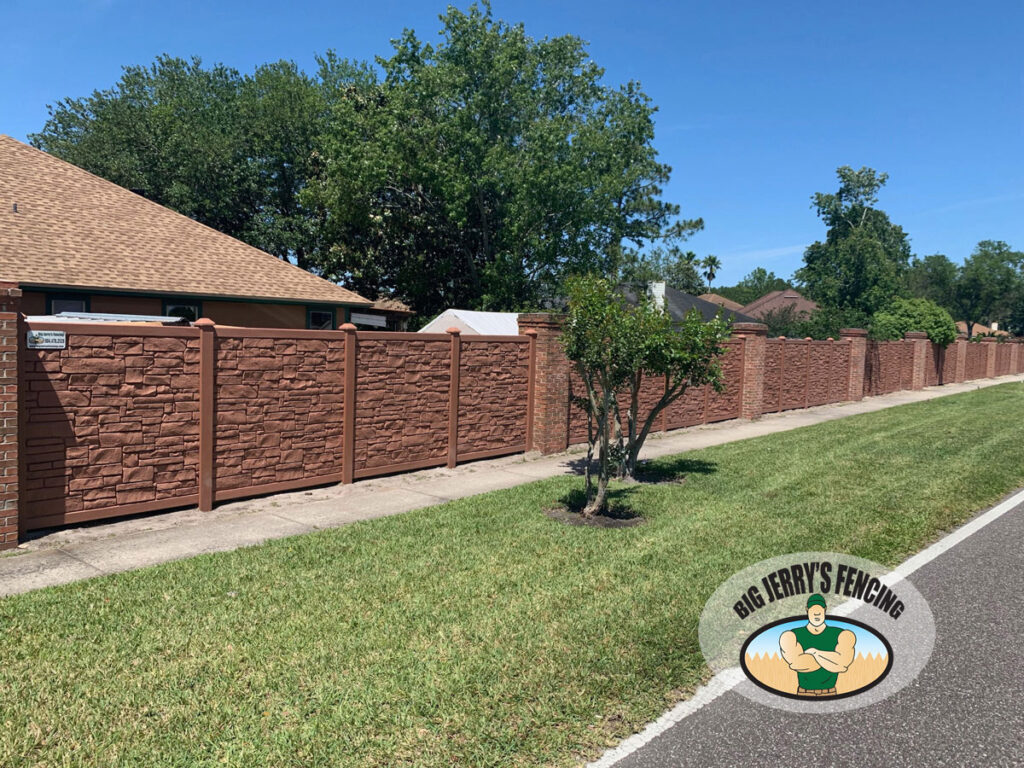
What could be more sustainable than investing in a product that will virtually never need repairs or replacing? Additionally, Simtek fences boast a high amount of recycled content, saving millions of plastic bags from landfills. Simtek Ecostone and Ashland styles are highly durable recycled fences with a truly unique appearance!
Natural Shrubbery & Privacy Hedges
If none of the fence types mentioned above satisfy your non-toxic requirements, a living fence may be worth consideration. Made out of shrubs and hedges, a barrier made from planted vegetation is a great way to achieve natural privacy. While you need to consider that this is still not a fence and won’t provide any containment for children or pets, tall hedges will typically provide ample privacy in the most eco-friendly way possible. Privet, juniper trees, cedar trees, and yew make the best privacy hedges as they are easy to prune and can be shaped and customized to give you the desired height and appearance. However, going this route will require constant maintenance as the plants must be watered and trimmed regularly.

